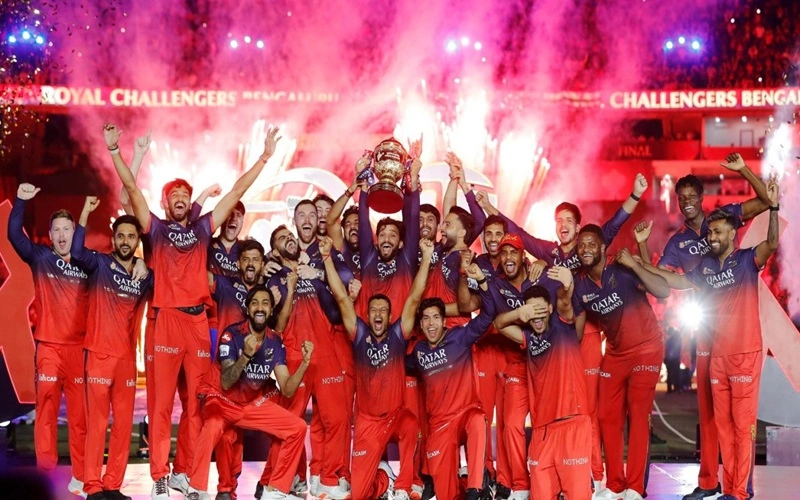In Indian cricket, few teams evoke as much fervor as Royal Challengers Bengaluru (RCB). From electric matches and roaring crowds to high-profile players, RCB has become an IPL icon. Yet, in the backdrop lies a key question: who is the RCB owner? Is it a flamboyant entrepreneur, a corporate giant, or a consortium? This article dives into the identity, background, and influence of RCB’s true ownership.
Early Foundations: Vijay Mallya’s Dreamers-and-Rocket-Fuel Era
RCB entered the IPL in 2008, bought by flamboyant industrialist Vijay Mallya, then chairman of United Spirits Limited (USL), for roughly $111.6 million—second-highest bid in the inaugural auction.
-
Mallya infused star power—both literally and figuratively—naming the team after his whiskey brand, Royal Challenge.
-
He facilitated marquee player signings like Virat Kohli, Chris Gayle, and AB de Villiers—moves that became team legends.
Though he brought charisma, his era ended tumultuously. In 2016, amid loan defaults and legal controversies, Mallya lost control of USL. RCB’s ownership transitioned to USL.
The RCB Owner: United Spirits (USL) Under Diageo’s Stewardship
Today, Royal Challengers Bengaluru is owned by United Spirits Limited (USL)—India’s premier spirits company. Since 2014, USL has been majority-controlled (≈56%) by global beverages giant Diageo.
-
USL manages the IPL team via Royal Challengers Sports Private Limited, with Prathmesh Mishra, Diageo India’s CCO, as RCB Chairman.
-
Diageo, a consumer drinks multinational with globally recognized brands, offers deep financial muscle and strategic discipline, providing stability after earlier era turbulence.
Founders to Boardroom: Leadership That Shapes Performance
-
Vijay Mallya (2008–2016) led with vision for high-octane branding and flamboyance.
-
Post-2016, Diageo/USL instituted a corporate structure focused on sustainable growth and measured execution.
-
Prathmesh Mishra, a veteran Diageo executive since 2014, now steers RCB as Chairman, blending strategic oversight with marketing savvy.
By 2025, the team clinched its first IPL title, a landmark validation of their methodical corporate approach.
Business Vision & Model: Star Power Meets Corporate Discipline
Branding with Purpose
RCB rides on its “play bold” ethos—powered first by Mallya’s star-laden vision and now upheld by consistent brand activations: sponsorships, fan engagement, and global outreach.
Corporate Backbone
Under Diageo/USL, RCB benefits from robust sponsorship (Qatar Airways, Puma, Jio), royalty brands, shared IPL revenues, and merchandise sales.
Organizational Structure
Royal Challengers Sports Pvt Ltd operates the franchise, with daily leadership under Chairman Mishra and strategic planning via Diageo’s collegiate oversight.
Marketing & Fan Strategy: From Yellow Taxis to Global Campaigns
Legacy Meets Innovation
Sporting its iconic red and black, RCB embraces fan loyalty through social media, celebrity endorsements, and community events.
Sponsorship & Partnerships
Corporate sponsors—Qatar Airways, Muthoot Fincorp, KEI Wires, among others—reflect strong business zeal and digital integration.
Fan Engagement Storytelling
Content series like RCB Unplugged, community programs, presence in WPL, and carbon-neutral initiatives show depth beyond cricket.
Expansion Strategy: Sustaining Presence on & off the Field
Performance Outcome
RCB reached IPL finals in 2009, 2011, 2016—and finally won in 2025, ending a 17-year wait.
Women’s League & Grassroots
Under USL and Diageo, RCB launched a WPL team in 2023 and won it in 2024—extending their cricket footprint.
Digital & International Reach
The franchise appears online, hosts global fans via campaigns, and supports expansion into developmental cricket—testament to its broadened vision.
Current Presence: Valuation, Performance & Road Ahead
-
Brand valuation: ~$117 million in 2024, placing RCB among top IPL franchises.
-
Fan following: Among most-followed IPL teams, massive social media engagement.
-
2024 season: Came 4th with strong attendance (~32,000 avg home fans).
-
2025 breakthrough: Secured their first IPL title under Rajat Patidar and coach Andy Flower.
The Owner’s Impact: From Branding to Championship
Stability & Growth
Transitioning from Mallya’s flamboyance to Diageo’s corporate rigour allowed coherence, sustainability, and methodical progress.
Fan-Centric Evolution
USL and Diageo improved fan experience via digital channels, merchandise, WPL inclusion, and green initiatives.
Performance Payoff
The 2025 title vindicates strategies under Diageo/USL—valuing infrastructure, consistent investment, and tactical leadership.
🔍 Conclusion: Unveiling the Real “RCB Owner”
In essence, the RCB owner today is United Spirits Limited, under majority control of Diageo Plc—a shift from Vijay Mallya’s early ownership.
-
Mallya established the team as a high-profile entity.
-
Post-2016, USL and Diageo brought structural integrity and global brand support.
-
Their leadership propelled RCB into sustainable success, capped by a 2025 IPL title.
From glitzy beginnings to corporate champions, the RCB owner has shaped a unique journey—blending entertainment with excellence, tradition with transformation, and fandom with franchise growth.
Related Article –
Unbeatable SRH Owner Strategy: Sun Group’s Bold Cricket Empire
